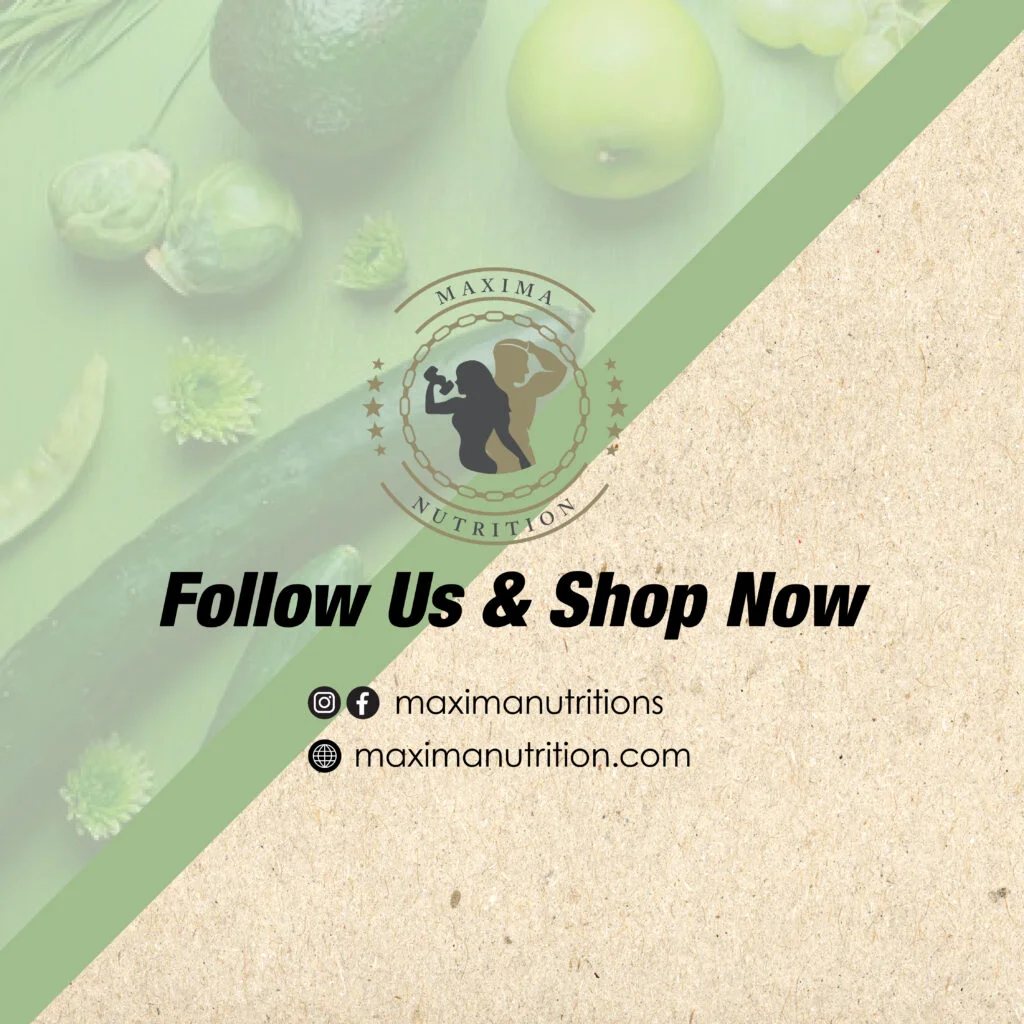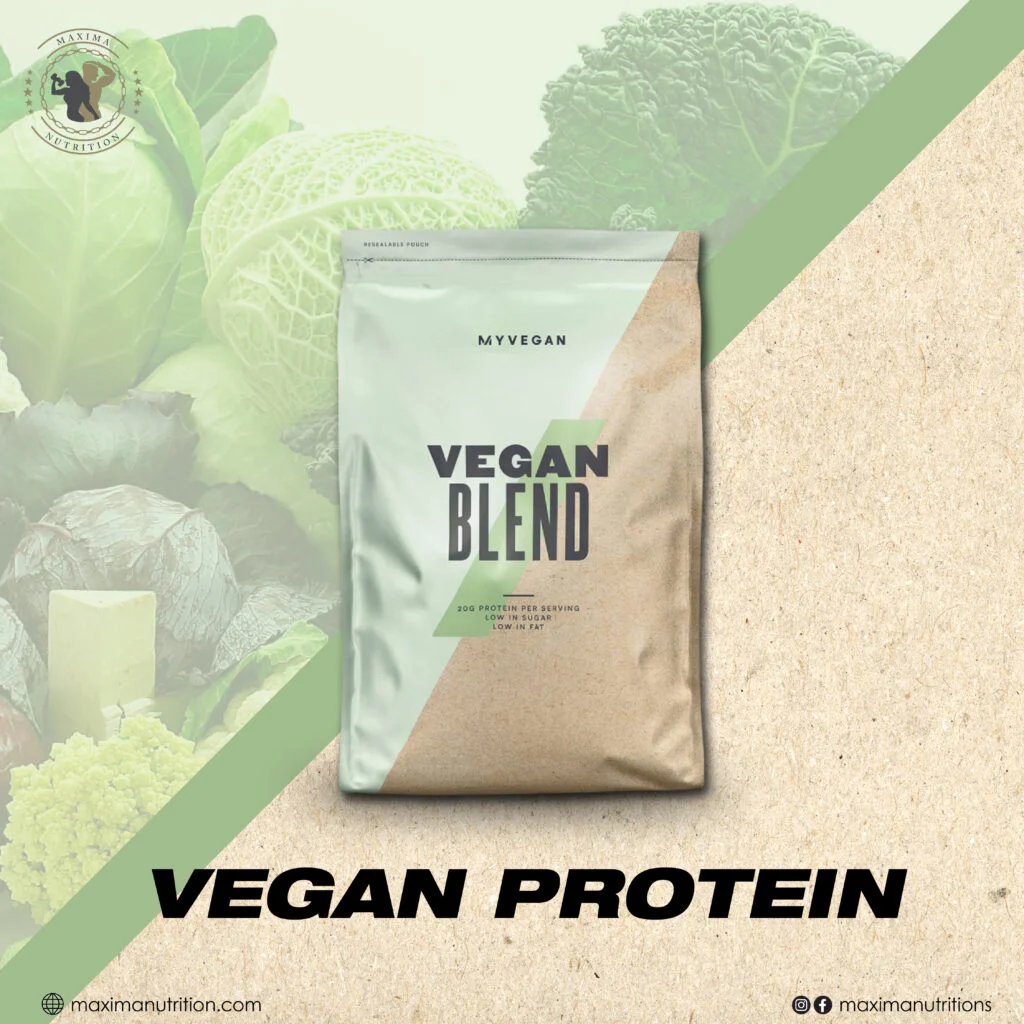
Protein
Protein is an essential part of our nutrition, making up about 17% of the body’s weight. It is the main component of our muscles, skin, internal organs, especially the heart and brain, as well as our eyes, hair and nails. Our immune system also requires protein to help make antibodies that are required to help fight infections, and protein also plays a role in blood sugar regulation, fat metabolism and energy function.
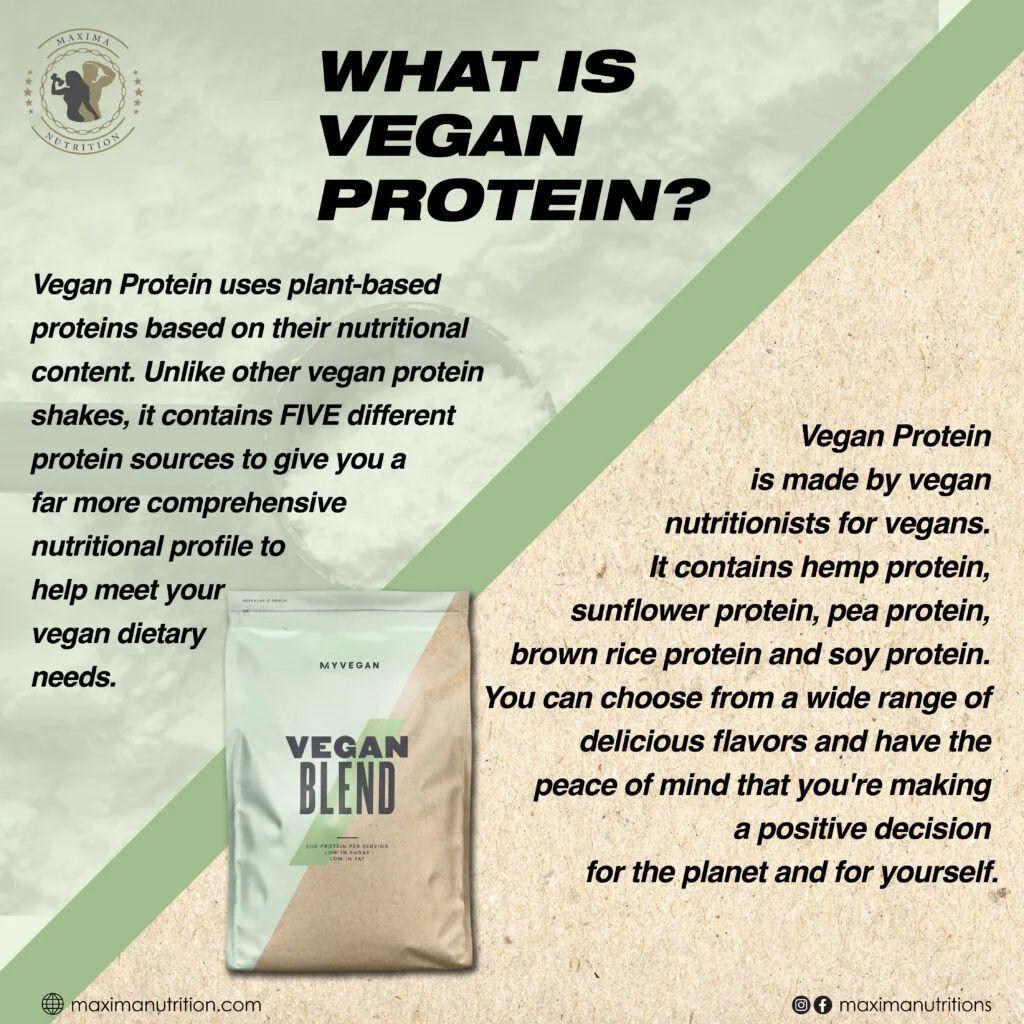
Vegan Protein
A person with a vegan diet does not eat meat, eggs, or dairy. This indicates that it restricts their sources of protein. However, there is still an abundance of vegan-friendly protein they can consume. There are many plant-based sources of protein that a vegan person can rely on. And they also contain additional nutrients that are beneficial to the body. Being vegan can have its challenges for those who exercise, as it is important to ensure there is adequate energy and protein and some key nutrients such as vitamin B12, zinc and iron, as well as calorie intake. Vegan diets can be more difficult to maintain and that there may be some issues around digestion and absorption of nutrients, but with careful management and supplementation, a vegan diet can achieve the needs of most athletes.
This article will cover some facts aboutvegn protein, its importance and what vegan foods are good sources of protein.
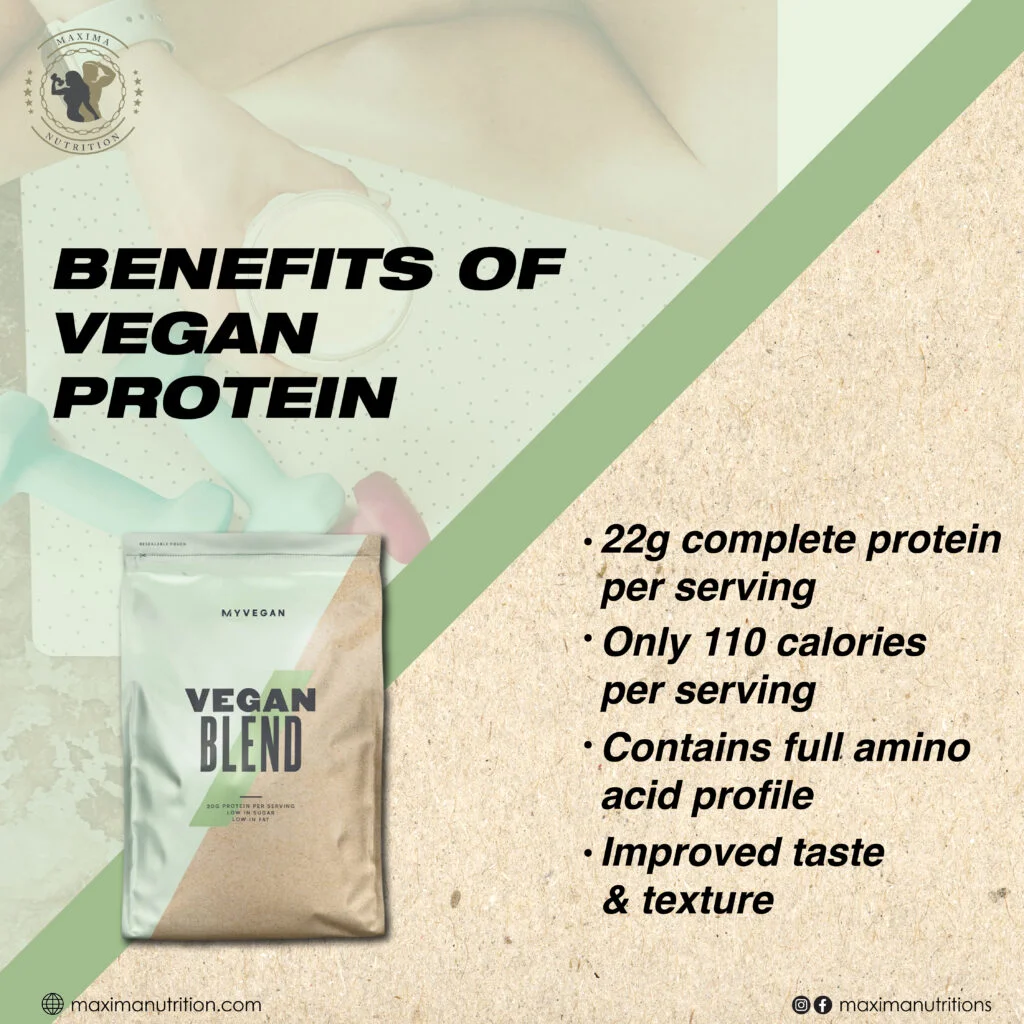
High-protein Vegan Food Sources
Plant foods can be a great source of protein. Nuts, pulses, certan vegetables etc are a good source of vegan protein. Some are mentioned below.
1. Quinoa
Quinoa is a seed and you can find white, red, black or mixed varieties. It is also known as a complete protein which means it contains all 22 amino acids, making it a great alternative to carbohydrates such as rice.
2. Pulses
Pulses includes all beans, peas and lentils. These make a great, low-fat and affordable source of plant protein and provide plenty of variety.
3. Nuts and Seeds
Nuts and seeds can be used with meals or as a snack to ensure adequate protein and energy which is maintained throughout the day.
4. Chia Seeds
Just one tablespoon of chia seeds will provide almost 2g of protein, and they can be used in breakfasts, sprinkled over salads and soups, or as a healthy, protein-rich dessert. They also work as an excellent replacement to egg in vegan cooking.
5. Oats
Oats are a complex carbohydrate, providing slow energy release, they are also an excellent source of protein.
6. Brown Rice
Primarily a carbohydrate, brown rice do contain adequate levels of protein and they’re also a great source of fibre.
7. Vegetables
Vegetables such as broccoli, asparagus, cauliflower, kale, spinach, brussel sprouts etc. are a great source of vegan protein.
Other sources include chickpeas, soybeans, Tofu, hemp seeds etc.
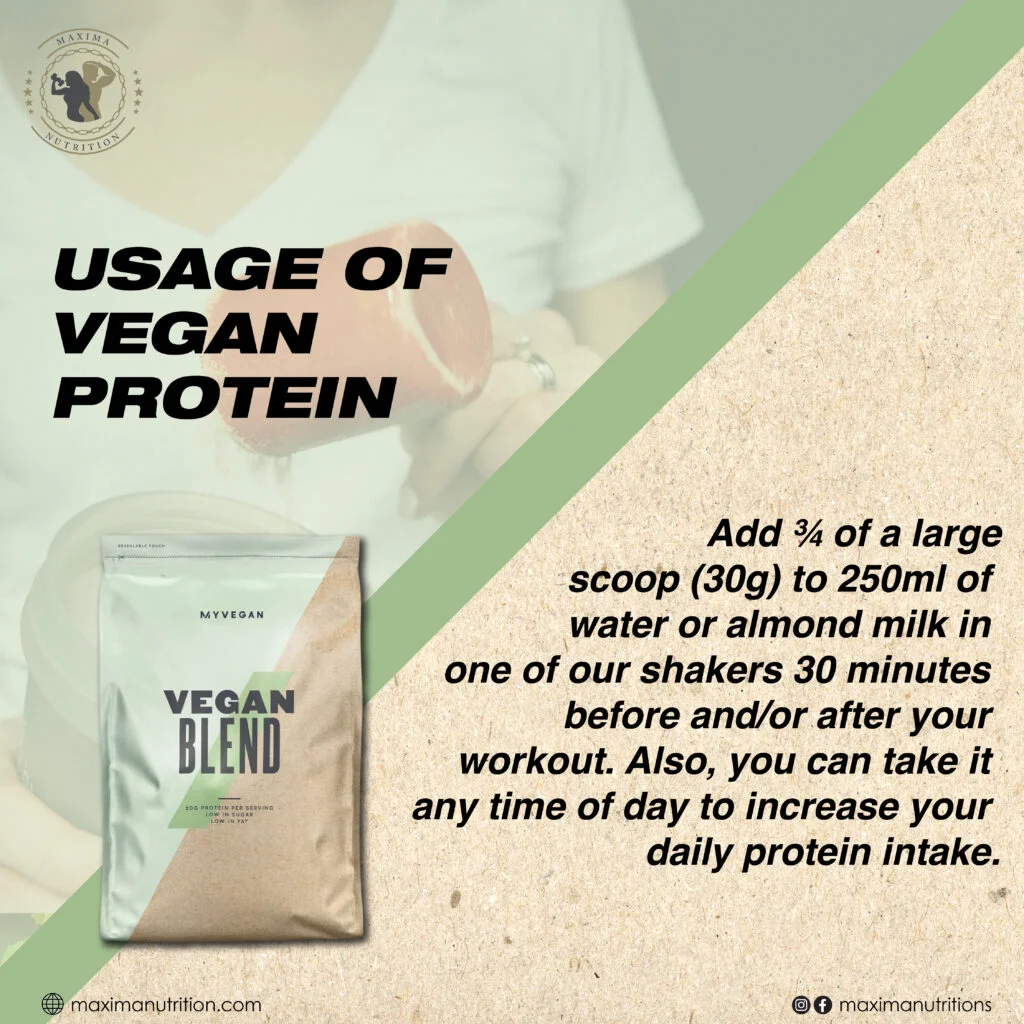
Vegan Protein Supplements
Protein powders can be an easy way to increase your intake of protein. They can be especially useful for those who have difficulty meeting their protein needs from food sources alone. However, many protein powders on the market contain animal-based products, which can make it challenging for vegans to find suitable plant-based protein supplements.
Here are some good vegan protein powders for all the vegans out there.
1) Garden of Life Organic Plant-Based Protein Powder
With 30 grams of proteinand 7g carbs packed into each serving, this plant-based protein powder can be an easy way to boost your protein intake. It features protein sourced from peas, sprouted navy beans, sprouted lentil beans, sprouted garbanzo beans, and cranberry seeds. It’s also certified organic and has undergone third-party testing to ensure that it does not contain unsafe contaminants or substances that are prohibited for athletes.
2) Gainful Personalized Protein Powder
Gainful provides personalized protein powders based on results from their online assessment. Their protein content ranges from 19 to 27 grams per serving and customers have the option of choosing Whey, Keto and plant-based formulas.
3) Orgain Simple Organic Plant Protein Powder
It provides 20 grams of protein per serving and is made from ingredients like chia seeds, almonds, pumpkin seeds, peanuts, and golden peas. It’s fully organic, non-GMO, certified vegan, and free of dairy, gluten, and soy.
4) Vega Sport Premium Protein
For athletes looking to boost their post-workout protein intake, This Vega Sport protein powder is a great option for those looking to boost their post-workout protein intake. It features 30 grams of protein per serving, which is made from a blend of plant-based sources like peas, pumpkin seeds and sunflower seeds.
5) KOS Organic Plant-Based Protein Powder
It contains 20 grams of protein and 170 calroies per serving which is sourced from a blend of pea protein, flaxseeds, quinoa, pumpkin seeds, and chia seeds. his product is also free of gluten, soy, artificial sweeteners, and GMOs.
Find the right one for you. If you have any food allergies, restrictions, or intolerances, check for these ingredients carefully and consider opting for products that are certified vegan or allergen-free. Consider consulting a healthcare professional before adding new supplements to your routine if you have any underlying health conditions.
Consuming too much protein can cause health related probles such as intestinal discomfort, high insulin, dehydration, nausea, fatigue, liver and kidney failure, diarrhea etc. It also causes excess of amino acids and ammonia in the blood. Overconsumption of protein can also increase a person’s risk of developing diabetes, cancer, osteoporosis.
Summary
There are many protein sources available to a person with a vegan diet. They are available through food as well as supplements and protein powders. They have many benefits but overuse should be avoided and should be taken with consultation.
